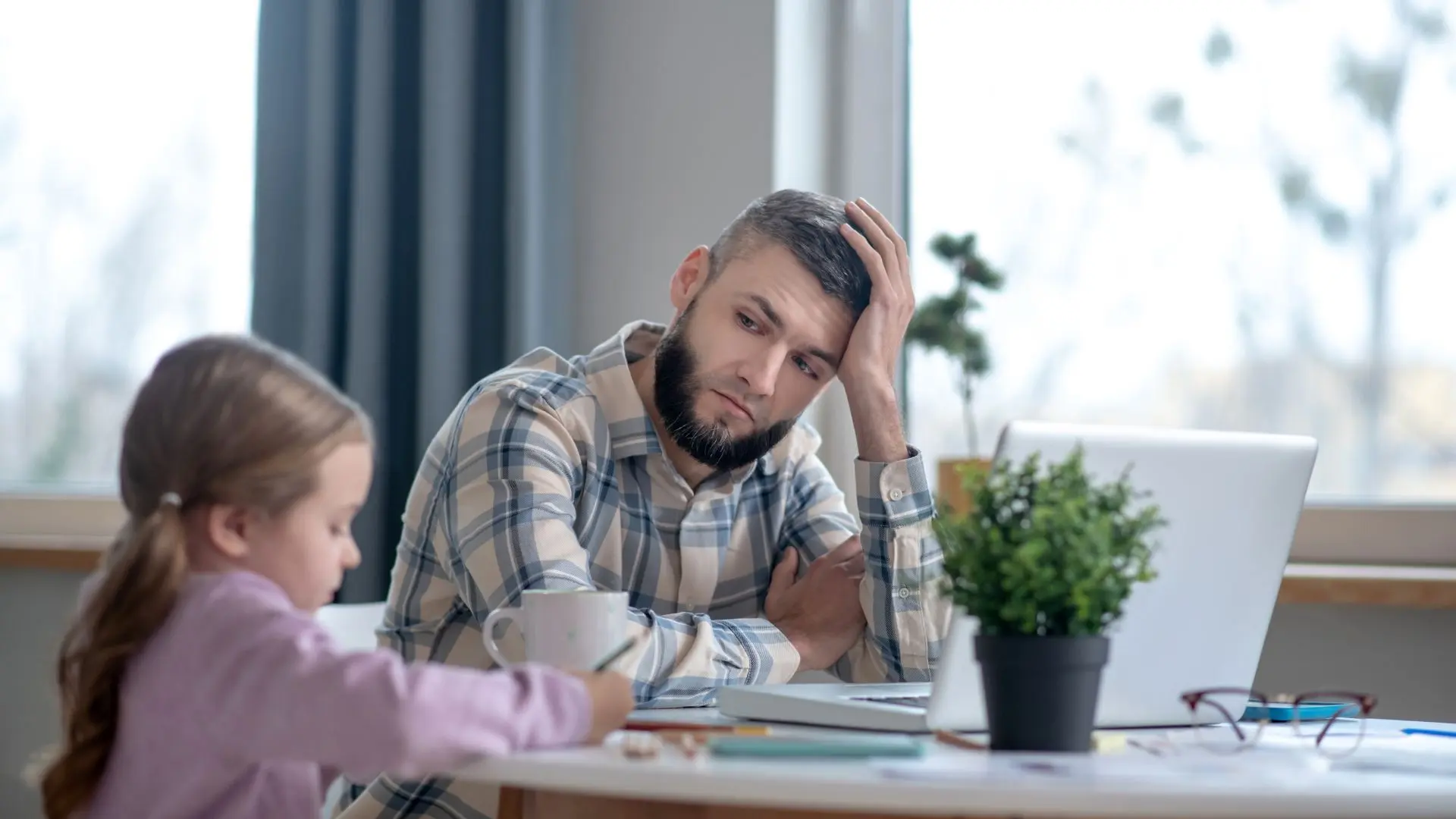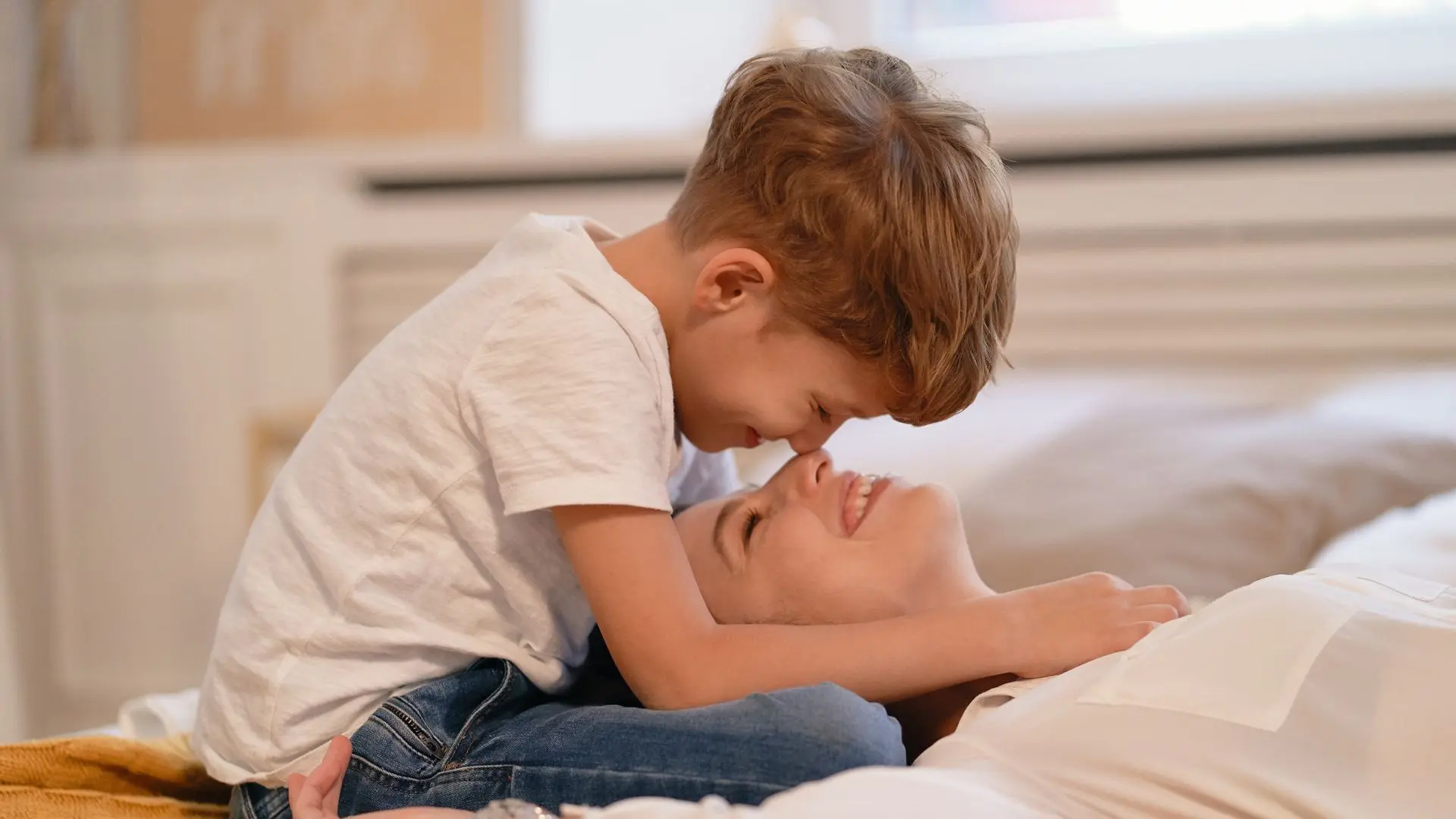Parenting guilt doesn’t define your worth as a parent. Learn how to manage stress, reframe negative thoughts, and build confidence in your single-parenting journey.

Parenting alone is tough, and many single parents experience parenting guilt, a feeling of inadequacy, or worry that they’re not doing enough. This guilt can arise from trying to balance work, family, and personal life—often with limited support.
But sometimes, life doesn’t make that possible. Maybe you have to work late, or you miss a school event because of other responsibilities. Or maybe, after a long day, you’re just too exhausted to play another round of that board game. And it’s in these moments that guilt creeps in—those nagging thoughts that maybe you’re not doing enough or that somehow, you’re falling short. That’s parenting guilt.
Parenting guilt is that feeling of self-doubt, anxiety, and worry when you think you’re not measuring up to some invisible standard of the “perfect parent.” For single parents, this guilt can be especially tough. You might feel like you’re letting your kids down because you’re trying to balance work, housework, and parenting all by yourself.
Or you might feel conflicted because you can’t be two people at once. Society doesn’t make it any easier. The expectations placed on parents are already high, and when you’re doing it on your own, it can sometimes feel impossible to meet those standards. But let’s remember this: no parent is perfect, and no one expects you to be.
Why We Feel Parenting Guilt
There are so many reasons why single parents experience parenting guilt more intensely than others. One of the biggest reasons is that sense of needing to fill two roles. You’re the sole breadwinner, making sure the bills are paid, the food is on the table, and your children’s needs are met. But at the same time, you’re also the emotional support, the one helping with homework, attending parent-teacher conferences, and comforting them when they’re upset. It’s an enormous responsibility.

Many single parents also put tremendous pressure on themselves to be everything their children need—physically, emotionally, and mentally. But the reality is that no one can do it all perfectly. We set these incredibly high expectations for ourselves, thinking that we should somehow be able to work a full-time job, maintain a spotless house, cook healthy meals, be emotionally present for our kids, and still have energy left over to do it all again the next day. It’s not sustainable, and when we inevitably fall short of these impossible standards, guilt creeps in.
Another reason single parents feel this way is because of comparisons. It’s hard not to look at two-parent families and feel like they have more resources, more time, and more support to give their kids. You see your children missing out on certain experiences, and it feels like you’re to blame for not being able to provide what other parents can. That comparison can create a deep sense of inadequacy.
The Impact of Parenting Guilt
When we carry parenting guilt around, it doesn’t just affect us—it impacts our kids too. As parents, we’re often our own worst critics, and when we’re bogged down by guilt, it can cloud the way we interact with our children. Sometimes, that guilt can make us more anxious or short-tempered, especially when we’re already running on empty. You might feel constantly worried that you’re doing everything wrong, and that emotional exhaustion can make it harder to be fully present with your kids when you do have time together.
Kids are incredibly perceptive. They pick up on our emotional cues, and when they see us stressed or feeling guilty, they might start to internalize those feelings, thinking they’re doing something wrong or that they’re the reason for our distress. Over time, this can affect their self-esteem. They might begin to feel neglected or believe they aren’t deserving of your attention, even though that’s far from the truth.
On the flip side, guilt can sometimes lead us to overcompensate. We may be more lenient or indulge our kids to make up for the time we can’t spend with them, which, although done with the best of intentions, can create behavioral issues. Boundaries may blur because we’re so desperate to be the “good parent” that we give in more than we normally would.
Strategies for Managing Parenting Guilt
The good news is that there are ways to manage parenting guilt. While it may never go away completely, there are practical steps you can take to ease the burden and be kinder to yourself as you navigate the ups and downs of single parenting.

1. Give Yourself Permission to Be Imperfect
The first and most important step is giving yourself permission to be imperfect. Let go of the idea that you need to achieve perfection in everything you do. No one can. You’re doing the best you can with what you have, and that is enough. Acknowledge that there will be days when things don’t go as planned, and that’s okay. It’s not a reflection of your worth as a parent. Your love, presence, and care for your child are what matter most.
2. Prioritize Self-Care
Self-care is not a luxury—it’s a necessity. You can’t pour from an empty cup. Taking care of yourself—whether that’s squeezing in a walk, spending 10 minutes with a book, or simply sitting in silence after the kids are in bed—helps you recharge. When you take care of your own mental and emotional health, you have more patience, energy, and positivity to share with your children.
It can feel selfish at first, but it’s important to remember that self-care makes you a better parent. Even small acts of self-kindness go a long way in keeping parenting guilt at bay.
3. Accept Help Without Shame
There’s often a feeling among single parents that you have to do it all on your own. But the truth is, you don’t—and you shouldn’t. Accepting help, whether it’s from friends, family, or a trusted babysitter, doesn’t make you any less capable as a parent. It makes you smart. Having someone watch the kids for an evening or ask for help with school pick-up gives you a break to rest and reset. And when you’ve taken that time for yourself, you’ll feel less weighed down by guilt because you’ll have more energy to be present with your children.
4. Reframe Negative Thoughts
When those negative thoughts creep in—like “I’m failing as a parent” or “I’m not giving my child enough”—challenge them. Reframe your thinking in a positive light. For example, if you’re feeling guilty about working late, remind yourself that your job is helping provide stability for your child. If you miss a school event, focus on the fact that you’re teaching your child resilience and independence. Acknowledging the positive impact of your efforts, even when they don’t look perfect, can help release some of that guilt.
5. Communicate with Your Kids
Children are often more perceptive than we often give them credit for. If you’re feeling guilty about something, talk to your child about it in an age-appropriate way. If you missed an important event because of work, explain why it happened and express how much you care. Children are often more forgiving than we realize, and having honest conversations can strengthen your bond and help them understand that they are loved, even when life gets in the way.
6. Connect with Other Single Parents
One of the best ways to combat parenting guilt is by talking to other single parents who are going through similar struggles. There’s a comfort in knowing you’re not alone and that others understand what you’re going through. Whether you join a support group or simply talk with other single parents you know, sharing your challenges and hearing how others cope can provide relief and help you feel less isolated.
Conclusion
Being a single parent is hard, and it’s normal to feel overwhelmed at times. But remember that parenting guilt doesn’t define your worth as a parent. You’re doing an amazing job, even on the days when it might not seem like it. By acknowledging your feelings, practicing self-compassion, and implementing these strategies, you can manage that guilt and focus on what truly matters—raising your children with love, understanding, and resilience. You’ve got this, and your children are lucky to have you as their parent.
Is this guide helpful? what is your strategy to overcome this parenting guilt? let me know in the comment section.
You may also be interested in : 10 Luxuries You Can Give Your Child as a Single Mom